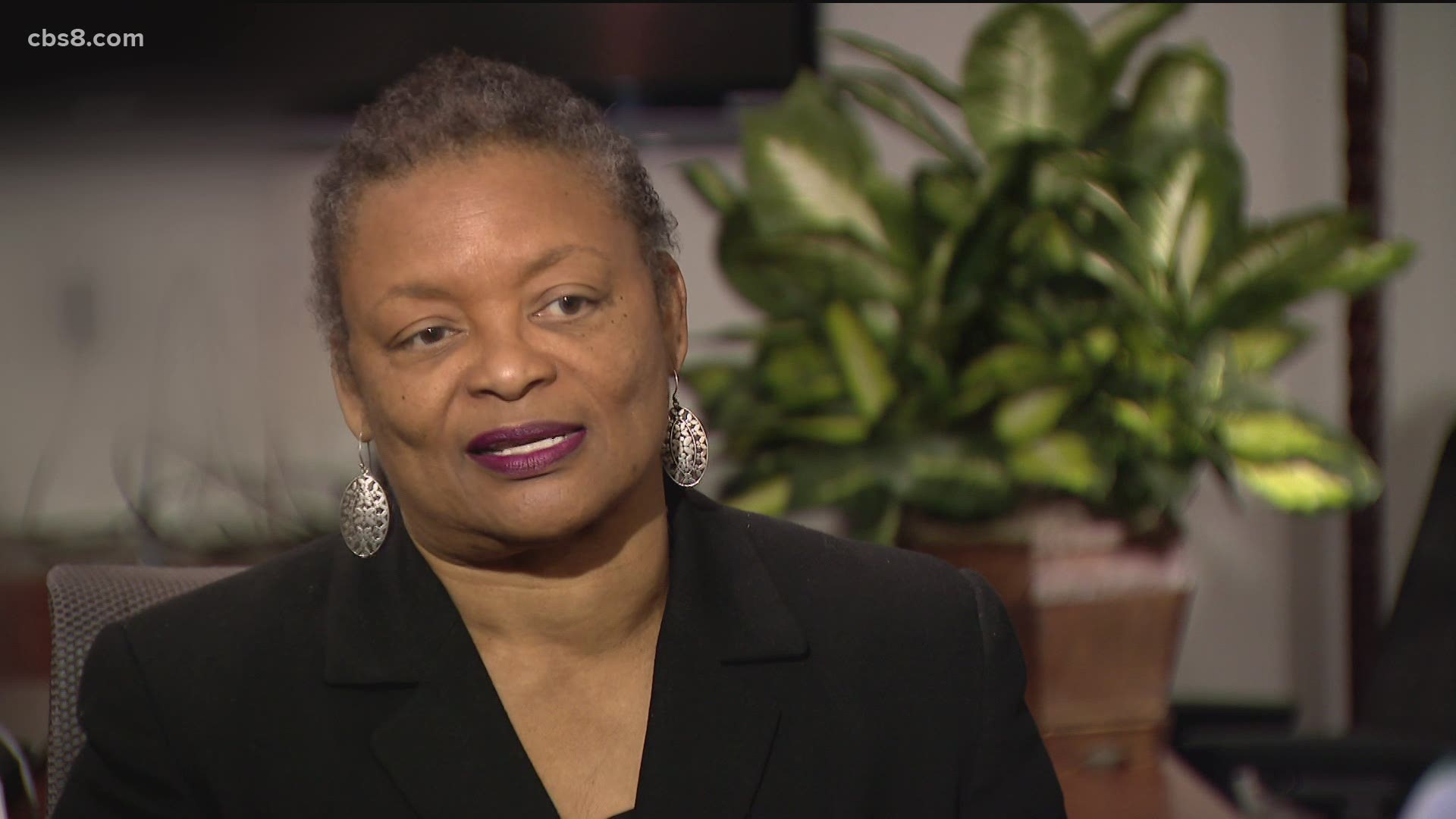SAN DIEGO COUNTY, Calif. — As California’s reopening approached, News 8 took a look back at this past year-plus with some of the key players in San Diego’s fight against COVID-19. No one played a bigger part than San Diego’s Public Health Officer, Doctor Wilma Wooten.
News 8's Carlo Cecchetto had the chance to get her reflections on the local pandemic response in a one-on-one interview.
San Diego Public Health Officer, Doctor Wilma Wooten, knew that a pandemic the magnitude of COVID-19 could happen, she just didn’t expect it to happen on her watch.
But it did.
What happened next was well over a year of unprecedented response, controversy and loss. Through it all, Doctor Wooten stood at the front of the county’s messaging with the focus on preserving the health care system and saving lives.
San Diego’s first confirmed case of COVID-19 came on March 9, 2020.
“But once we start getting cases, it was about mitigation," Wooten said. "So we've been in mitigation mode for the last 15 to 17 months, actually almost 17 months.”
To slow the spread and save lives, people were ordered to stay home and businesses had to close their doors.
“Well, it's really trying to balance and it is a balancing act, but to balance the public protection of the public's health against the economic viability of the community. They were gut-wrenching decisions in actuality, but we know the non-pharmaceutical interventions were the only thing that we had to help stave off the virus, even in 1918. We have pictures in our hallways at Rosecrans about people wearing masks at that time. But those are the only strategies you have because there was no treatment early on and obviously there were no vaccinations.”
Constantly changing and sometimes contradictory orders came from national, state and local health officials, which Doctor Wooten, San Diego’s Public Health Officer, had to explain and defend despite often harsh criticism.
“What I tried to do was to give people the upfront, 'OK, this will change or this may change going forward. But this is what we know today,'" she said. "And in COVID-19 and really, particularly with novel viruses, what you know today could change tomorrow or it could change next week. So you can only share what you know is true today. And then as you gain more information, then you update. I feel that provides credibility.”
There were hard lessons to be had. Things started to open back up last May only to be soon shut down again.
Dr. Wooten said that showed that voluntary measures weren’t enough.
“So if people complied with that, we could stave this down. But if people were going to bars, going to beaches, going to large parties, then you… we.. could not get our arms around this virus," she said. "So people had to really believe that this virus was a threat. We saw that it continued to be a threat because, in the middle of July, the state had to shut things down again.”
After a second wave in summer, the worst was ahead in the coming winter months. The San Diego health care system was pushed to its limits.
”We were there, we were there. If it had gone much longer - I just really don't even want to think about the situation," Wooten said. "But for probably a good six weeks, six weeks, we were really in the throes. It was mind-blowing. I just couldn't believe it. That was scary. It really was.”
To get through the darkest times, Wooten said she had to set her fears aside.
”We cannot fail the people of San Diego, we cannot fail our employees, we just can't fail," she said. "So we have to do everything that is necessary, and possible to get the job done…. my life was the job at that point in time. And you go home, you go to sleep, get some sleep, and then you wake up to do it all over again. That was not only my life, but that was really the life of employees at the County of San Diego involved in the COVID-19 response. Every day was focused on the job and you go home, get some sleep, wake up, and you do it all over again.”
One hurdle she had no control over was the politics surrounding the pandemic.
“Well, the one thing about being in America is that people have free thought and their opinions, they are free to speak their opinions," Wooten said. "And we would never want to stifle anyone in speaking their opinions…. But you still have to continue on your course and listen to the community, listen to what people have to say, but act on the science and what we know is the right thing to do and share that information.”
Wooten is also emphatic about what she called the tremendous response from San Diego’s entire health care system, but, especially, the doctors and nurses. She said she just can’t thank them enough.
WATCH RELATED: San Diego County fully reopens Tuesday as first-dose vaccines reach 75% of goal

